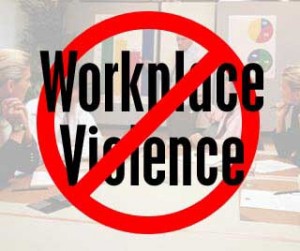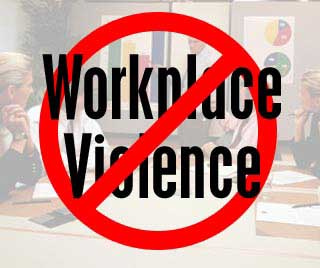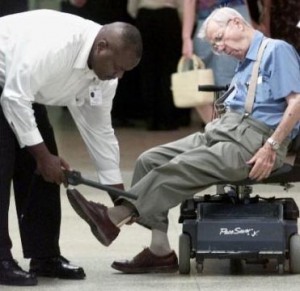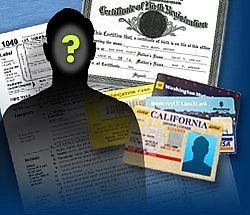“In today’s tight job market and in the era of rampant identity theft, it’s important to stack the odds in your favor and stand out from the crowd.”
 All knows that these days most employers conduct background employment checks on their prospective and potential hires, often times, the results of these checks are find determinant on whether you get the job or not.
All knows that these days most employers conduct background employment checks on their prospective and potential hires, often times, the results of these checks are find determinant on whether you get the job or not.
Well, in today’s economic environment, firms cannot afford to be side-tracked by employee problems such as workplace violence, theft, false resumes, embezzlement, lawsuits for negligent hiring, harassment, or trumped-up inquiry claims. The truth is that employers are very strict and conscious about making hiring decisions; they are not taking risks at all. They are running comprehensive employment checks on their employees to pick out the wrong ones on initial stages.
So, as the scarcity of employment persists with the double dip recession in past few years, we really need to assure ourselves that we get the best out of every employment opportunity we get around.
“A 2004 study by the U.S Public Interest Research Group found that 79% of consumer –credit reports contained at least one mistake”.
By taking the above example we can easily understand that minor discrepancies in our credit histories, educational documents, criminal records and in past employment records can cost us a job. So, It may be a very good idea for you to run an employment background check on yourself to make your job application secure!
It sounds a bit odd, but it’s possible to run an employment check on you. There are four essential pre employment background checks that you can run on yourself are as follows:
- Education background checks
- Credit History Checks
- Criminal background checks
- Social Security Number Trace
How to Do Education background Checks to Survive Strict Credentialing:
There are some important things which employers really want to look in is your authentic education background and credentials. Your university/college accreditations, Your study tenure (dates), Sometimes your grades are being verified
- When verifying your college degree, the first place you want to look is The National Student Clearinghouse. They run the automated database that provides degree verification.
- Typically, colleges and universities provide education verification over the telephone. Very few require signed released or verify on by mail. You can contact your institution administration office or the registrar office to confirm the accreditation of university/college with accreditation authorities. Then you can double check your admission and passing out dates.
- If your institution cannot find your degree or the name on degree is changed to your current name, (an unusual situation, but it might happen), you have to take care of the problem. You will probably need to fax the school a copy of your diploma or any other documentation you have.
How to Run Credit History Checks on Yourself:
Credit histories are very essential in background employment checks and the employers are keen to know about your past credit endeavors to understand about your future in their organization. So it’s better to run a credit history check on yourself by adopting these five precautions to detect minor mistakes which can cost you a job.
Be aware of what is on your credit report, especially if you think a prospective employer might check it. That way, if there are inaccuracies on the report, you can take steps to correct them.
- Contact your bank and ask them for your credit report.
- If you find any mistake or discrepancy, point out and correct it right away.
- Make your bank to certify you for clean credit history.
After these 3 steps to resurrection, you can notify your prospective employer of the inaccuracies and of the steps you have taken to correct them. Correction of inaccuracies on your credit report is something that may take time, but it’s worth-ed to secure a job.
Criminal Background Checks as Employment Checks:
Employers want to know about your background, and you can be assured that they will check to see if you have a criminal history.
- Criminal conviction records can be invaluable source of information. For the most part, these records are public and available to anyone. In most instances these records can be obtained from the country criminal court clerk’s office.
- Convictions for minor infractions to major felonies can be found there. Files include full details of the case and ultimate disposition. Statewide criminal record databases can also be helpful in criminal records search.
- Criminal background checks be best searched by hand at the county/states level, with full names, date of birth, should be used as much as possible to confirm a positive identification.
Social Security Number Trace
An applicant’s social security number is used throughout the pre-employment screening process, so it is important to verify that the number is valid.
Checking your validity of the number accomplishes several things:
- It confirms that the number belongs to you and it provides a list of current and previous addresses, as well as other names used.
- Make sure each numeral is clearly written so no one has to try and decipher your handwriting.
- If you had reason to change your SSN, provide both numbers and add a brief note explaining why you had to change your number. Also, indicate when you started using the newer SSN.
- This verification also provides other last names associated with the SSN and a list of previous addresses.
Concluding Remarks:
There are many different things that need to come together when you’re searching for a new job. You need a professional-looking resume, strong interviewing skills, and a can-do attitude. These things will get you in the door and help you make the final cut.
But you have to get through the background check to get the job. Offers aren’t made to people when there background checks are red flagged.
Preparing yourself for a background check is one of the best things that you can do to help your job search efforts.
Not everyone knows what happens during a pre-employment screening. In fact, most people know very little about it. They go into a background check blissfully unaware of the possible pitfalls that might occur.
Consider hiring a background check company or try to check your background online with authentic sources and public record portals, they are extremely helpful and can easily detect you out of everywhere; they are reliable, cost effective and time saving.
 A former college instructor was recently arrested in Maryland following a fraud investigation of his falsified degrees, military experience and other personal details, according to TBD.com. Bill Hillar had been teaching, leading workshops, giving speeches and conducting training for at least a decade based on his fabricated biography.
A former college instructor was recently arrested in Maryland following a fraud investigation of his falsified degrees, military experience and other personal details, according to TBD.com. Bill Hillar had been teaching, leading workshops, giving speeches and conducting training for at least a decade based on his fabricated biography.
 Follow
Follow












